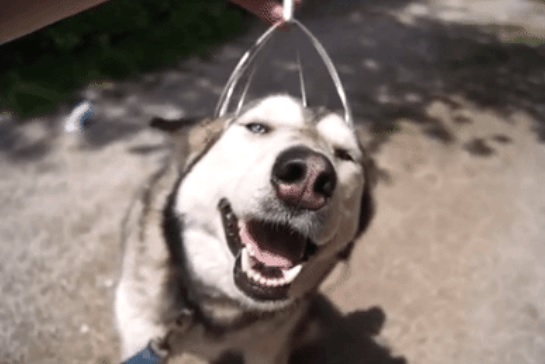
A pet is the perfect addition to a growing family, and a puppy is the perfect gift for someone looking for a new companion. While pet gifts can be long-lasting and meaningful, they are not to be taken lightly. You are giving a dog that will be a part of your loved one’s life for years to come. Make sure it is a gift that will be well received and given a good home.
Tip #1: Remember, this is a gift, not a surprise.
While the image of a puppy jumping out of a big red box on Christmas morning to the surprise of the entire family is tempting, a new dog is a significant change in someone’s lifestyle. If the recipient is completely dazzled, you are no longer giving a gift, but rather a burden. Talk to the recipient first to make sure the dog will be a welcome gift. If you want to be sure you are getting a puppy with a good temperament, try to find a reliable breed, such as English Labradors.
Tip #2: Consider a puppy starter kit as an alternative.
While it may be tempting to give your loved one a pet, exercise restraint and put the plan on hold. After thinking about this holiday gift, you may find that a puppy starter kit is a more affordable (and responsible) alternative to a photo-worthy red-ribboned Labrador retriever.
If you decide to go this route, stock up on dog food, chew toys, water bowls, and puppy shampoos so your loved one has access to a fully stocked cupboard when it's time for a furry family member.
Tip #3: Make sure the recipient is prepared for the upcoming trip
Not every dog lover has the innate ability to care for a canine companion. While wagging tails and furry faces may light up their eyes, their hectic work schedules may not be conducive to the ups and downs of being a puppy parent. With that in mind, if your intended recipient is juggling 70-hour workweeks and busy weekend commutes, it may be time to reconsider your decision.
Are you worried that the gift recipient is not ready to become a puppy parent? If so, watch out for the following warning signs:
- Their landlord has a strict zero-tolerance policy on dogs.
- Their financial situation does not allow them to cope with the associated costs of maintenance (e.g. medical bills, monthly food costs, vaccinations, etc.).
- They have small children in the home who may be wary of their new canine companion.
Tip #4: Have an open and honest conversation with the future dog owner
Once you have completed the initial assessment of the recipients readiness, it is time to begin an open and honest discussion. This is where you should learn about the recipients fears or anxieties related to pet ownership. Also, try to make subtle (and not so subtle) hints about what you are planning
Be sure to discuss the situation with a calm and compassionate demeanor. Don’t pressure your loved one into owning a dog, and don’t shame this family member or friend for their initial hesitation. Ultimately, they will be the ones shelling out for vaccinations, vet visits, and grooming services, so their opinions matter.
Tip #5: Avoid Pet Stores Like the Plague
They say love is blind. In the face of all-consuming puppy love, this sentiment couldn't be more true. While the intoxicating scent of a new puppy can be hypnotic, don't be swayed by the charms of the pet store.
Unfortunately, many of these pet store puppies come from puppy mills known for their filthy and horribly inhumane conditions. As a result, many of these puppies purchased from local pet stores are prone to illnesses and behavioral disorders that can spell disaster for first-time dog owners. Not to mention, their exploitative payment plans are designed to lust after buyers are disoriented by the exciting prospect of a new pet.

Tip #6: Find a pet from a reputable breeder.
A vital part of adopting a new dog is the “trial period,” where puppies are introduced to different families to find their perfect fit. When giving a dog to someone else, this “trial period” is not possible. That’s why it’s so important to find a breeder who can promise a puppy with robust health and a calm, friendly personality. Make sure your breeder is certified by the American Kennel Club, an organization that ensures that your new puppy comes from an ethical and responsible breeder.
Tip #7: Consider the recipient's lifestyle.
Different dogs have different needs, and every family has a different lifestyle. Once you've made sure the recipient is ready for a dog and you've done your research on breeders, it's time to find the breed that will be the perfect new family member for your loved ones.
If you’re giving a puppy to an active family with children, a Labrador or Golden Retriever would be a good fit. If you’re giving a puppy to a family with a sedentary lifestyle, a smaller dog with less energy might be a good choice. Also, consider the impact of their work or school schedule. Will they be around to let the dog out or take him for a walk? Some breeds are more high-maintenance than others, so do your research to find the best fit.
Tip #8: Take care of the initial costs.
Puppies come with a lot of expenses right off the bat. Some of these costs include initial vet visits and shots, spaying or neutering, microchipping, and anything the dog needs to feel at home, like toys and a collar. These initial expenses can be a burden on an unexpecting family, so covering these initial costs is a necessary addition to your gift.
Tip #9: Invest in microchipping
To avoid a heartbreaking separation between an owner and their new furry friend, invest in a microchipping service. While you may incur a modest fee initially, it’s a small price to pay to pray for an extra sense of security and much-needed peace of mind – both invaluable additions to your puppy plan.
Between the stress of doggie disasters (i.e. household accidents, fights on the couch, or stuffed animals scattered around the living room), obedience training, and daily trips to the dog park, your loved one won’t want to add “Lost Dog” posters to their list of problems. However, make an afternoon trip to the nearest veterinary clinic and pay $45-$50. In no time, the gift recipient will be able to track down their pet in the event of an emergency, such as a natural disaster or a theft incident. Plus, with a microchip, the new puppy parent in your life will be well equipped to find Fido the runaway.
Tip #10: Pack a welcome basket for the new family member.
If you're really going for a surprise, chances are the recipient won't have any puppy supplies to use for their new furry friend. Help the new owner make the puppy feel at home by packing a welcome basket—a crate and bed, toys, food, treats, doggy bags—all the essentials. Oh, and don't forget the training pads.
Final thoughts
The gift of a new furry family member will be long-lasting and meaningful. Make sure the new dog is the right gift for the host family. Ask yourself if this is a good home for the new dog, and if so, what kind of dog will fit into their lifestyle. Once you’ve registered with reputable breeders and covered those initial costs, you’ll be well on your way to giving the gift of pet ownership.













Оставить Комментарий